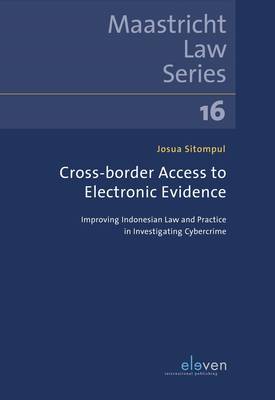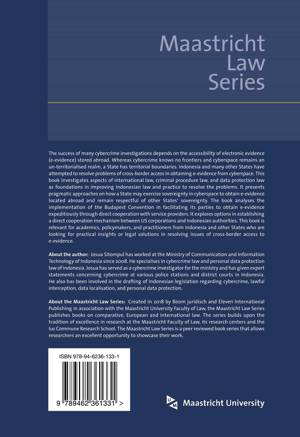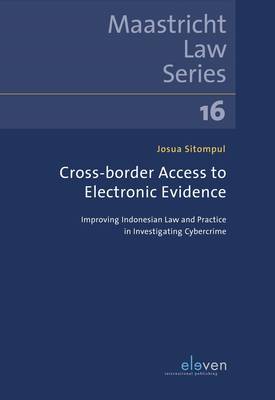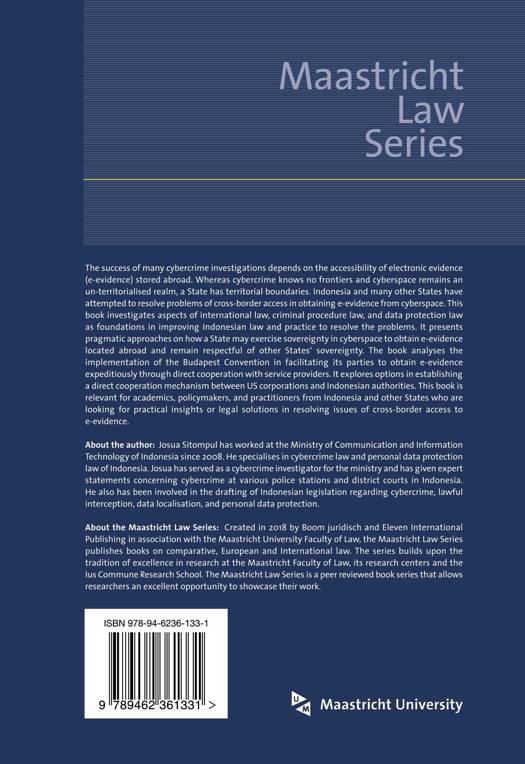
- Retrait gratuit dans votre magasin Club
- 7.000.000 titres dans notre catalogue
- Payer en toute sécurité
- Toujours un magasin près de chez vous
- Retrait gratuit dans votre magasin Club
- 7.000.0000 titres dans notre catalogue
- Payer en toute sécurité
- Toujours un magasin près de chez vous


Cross-Border Access to Electronic Evidence
Improving Indonesian Law and Practice in Investigating Cybercrime Volume 16
Josua SitompulDescription
The success of many cybercrime investigations depends on the accessibility of electronic evidence (e-evidence) stored abroad. Whereas cybercrime knows no frontiers and cyberspace remains an un-territorialised realm, a State has territorial boundaries. Indonesia and many other States have attempted to resolve problems of cross-border access in obtaining e-evidence from cyberspace. This book investigates aspects of international law, criminal procedure law, and data protection law as foundations in improving Indonesian law and practice to resolve the problems. It presents pragmatic approaches on how a State may exercise sovereignty in cyberspace to obtain e-evidence located abroad and remain respectful of other States' sovereignty. The book analyses the implementation of the Budapest Convention in facilitating its parties to obtain e-evidence expeditiously through direct cooperation with service providers. It explores options in establishing a direct cooperation mechanism between US corporations and Indonesian authorities. This book is relevant for academics, policymakers, and practitioners from Indonesia and other States who are looking for practical insights or legal solutions in resolving issues of cross-border access to e-evidence.
Spécifications
Parties prenantes
- Auteur(s) :
- Editeur:
Contenu
- Nombre de pages :
- 322
- Langue:
- Anglais
- Collection :
- Tome:
- n° 16
Caractéristiques
- EAN:
- 9789462361331
- Date de parution :
- 10-06-20
- Format:
- Livre broché
- Format numérique:
- Trade paperback (VS)
- Dimensions :
- 165 mm x 240 mm
- Poids :
- 530 g

Les avis
Nous publions uniquement les avis qui respectent les conditions requises. Consultez nos conditions pour les avis.







